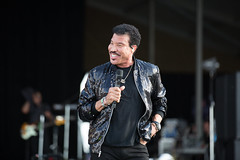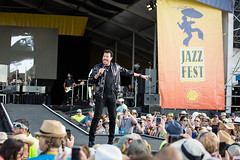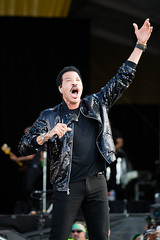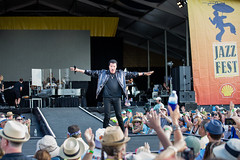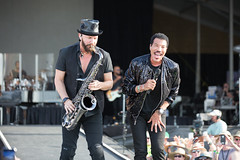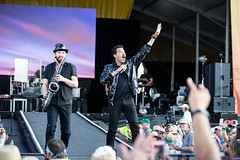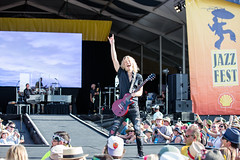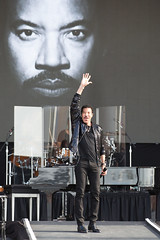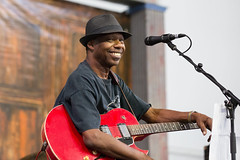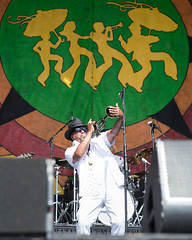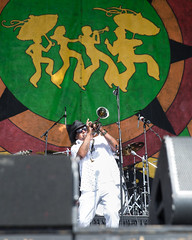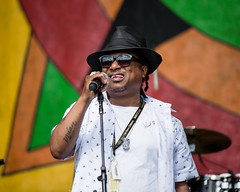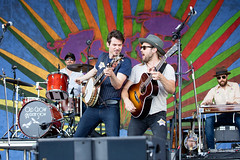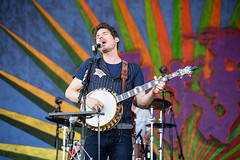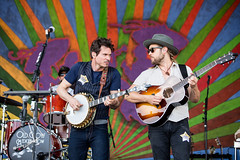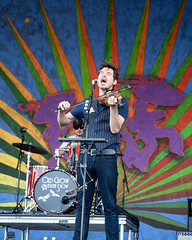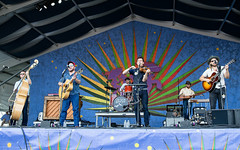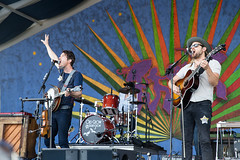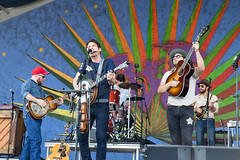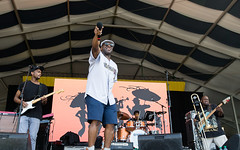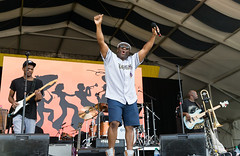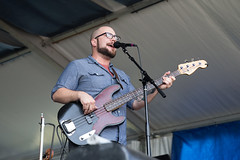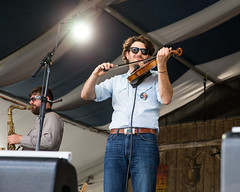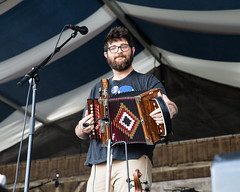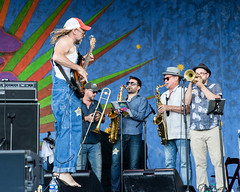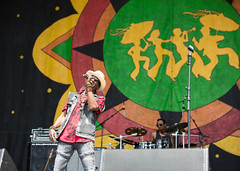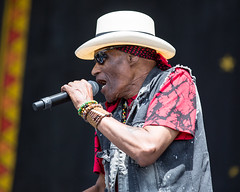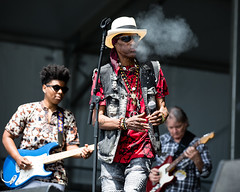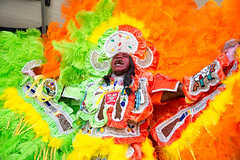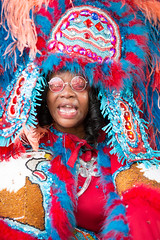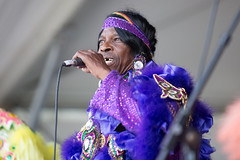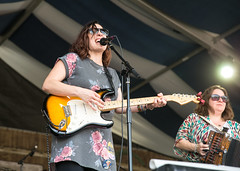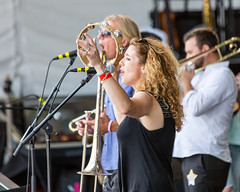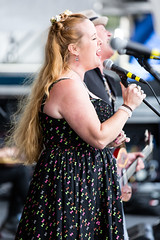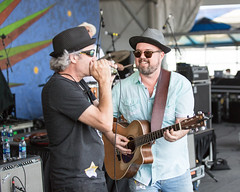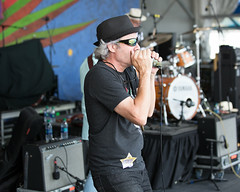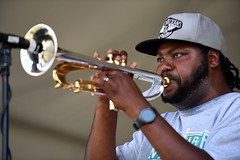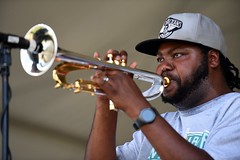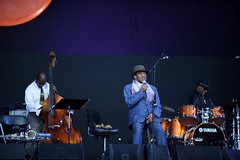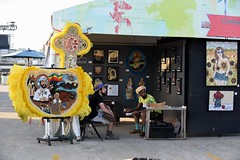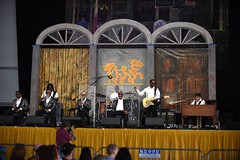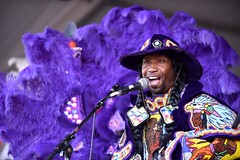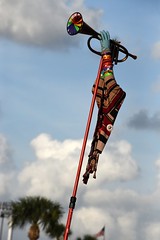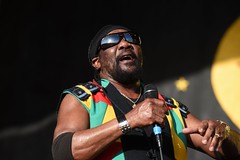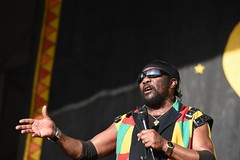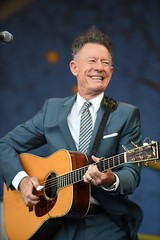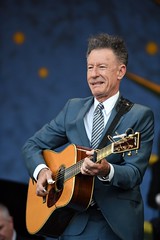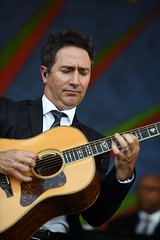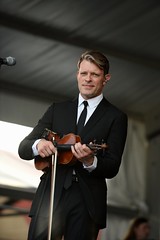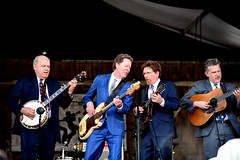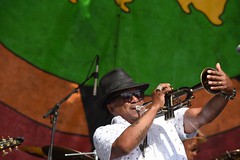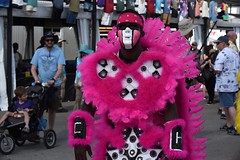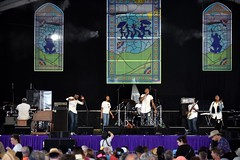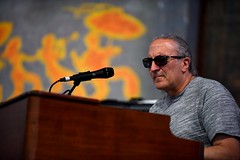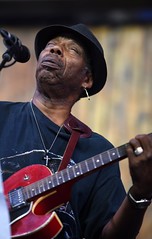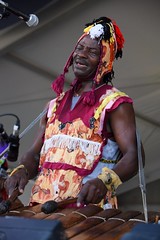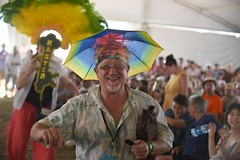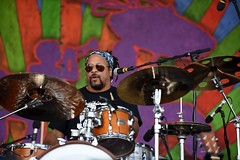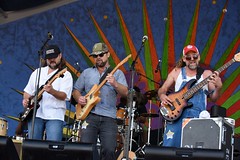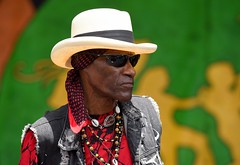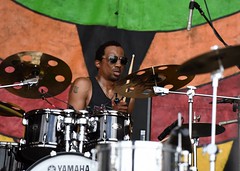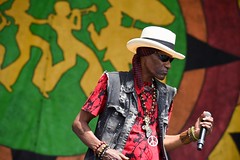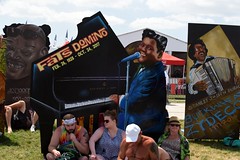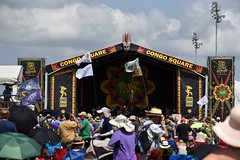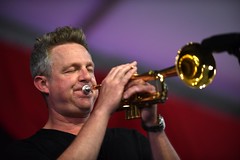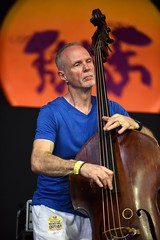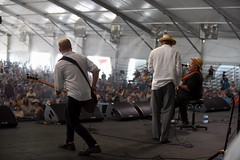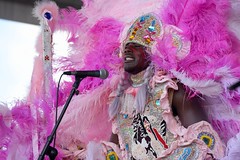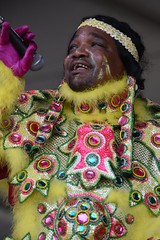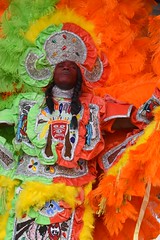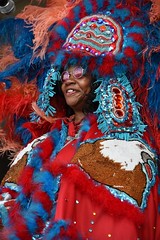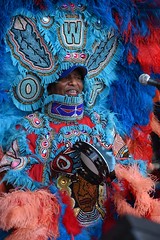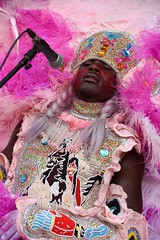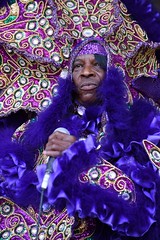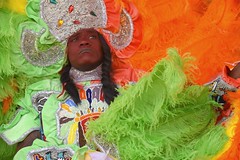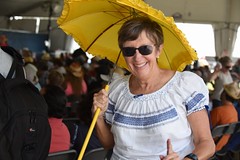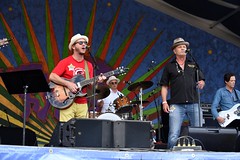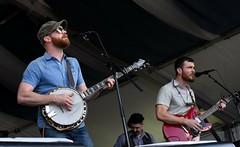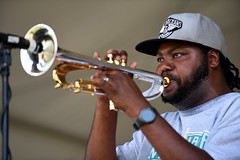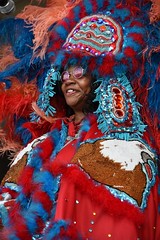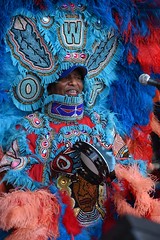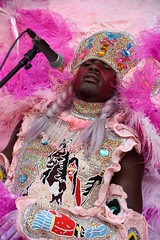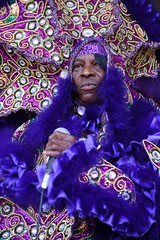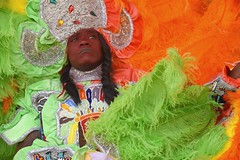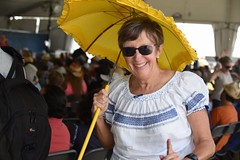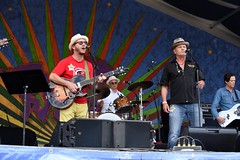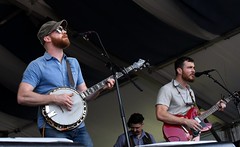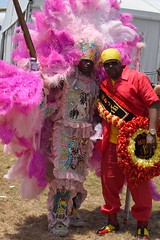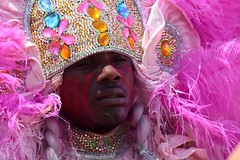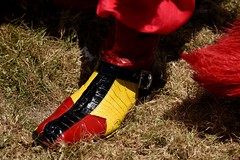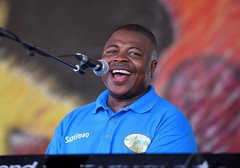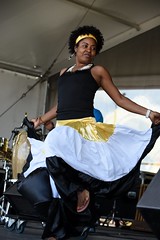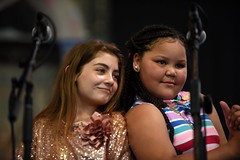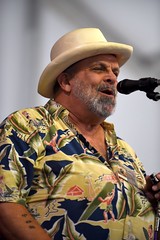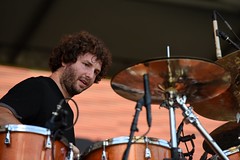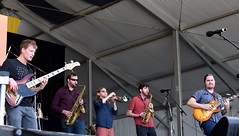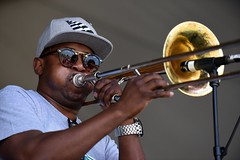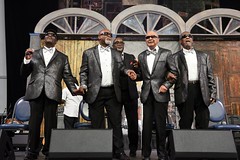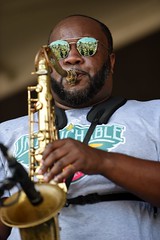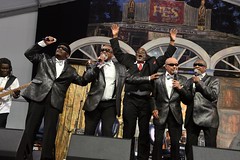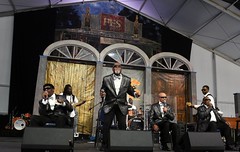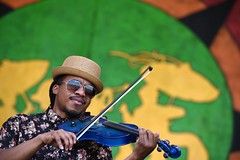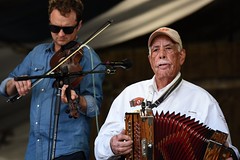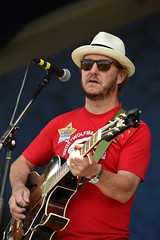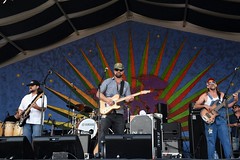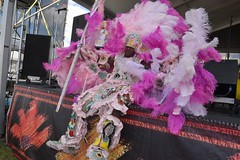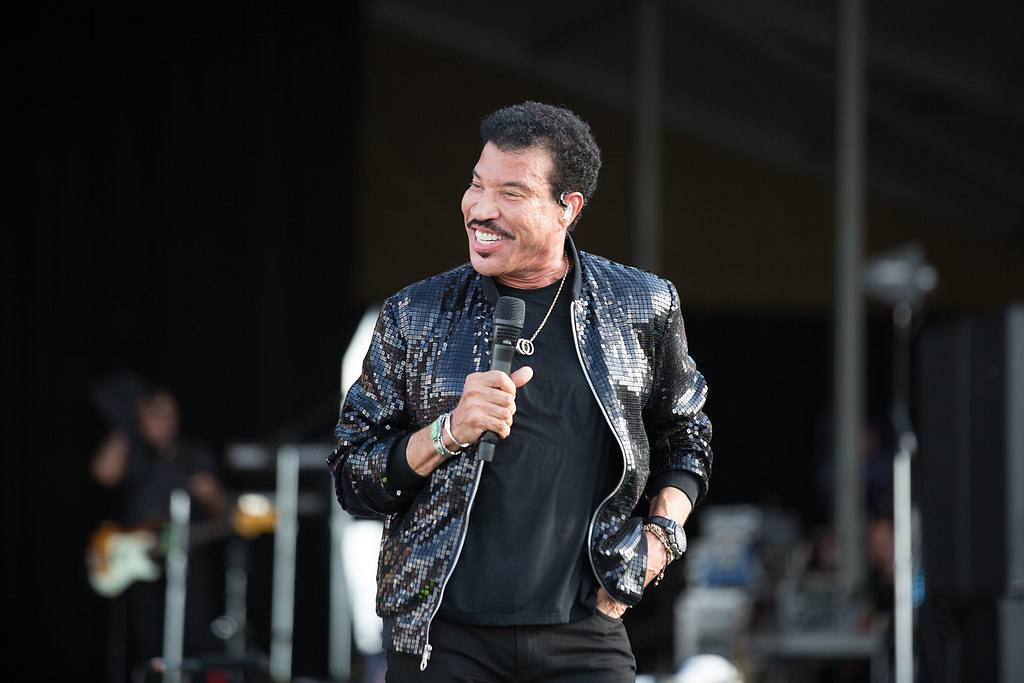Tales from the Jazz Tent
The WWOZ Jazz Tent at our beloved Jazz Fest remains New Orleans’ prime opportunity to enjoy some of the world’s most renowned jazz acts yearly. During the weekend, the stage was graced with the presence of jazz legends, the likes of bassist Ron Carter or saxophonist Charles Lloyd, and local powerhouses like Christian Scott or Nicholas Payton.
On Thursday, May 3, the second weekend of this year’s Jazz Fest kicked off with the local sounds of Pat Casey and his New Sound, Larry Sieberth and Jeremy Davenport.
Then followed the first appearance at Jazz Fest of producer, rapper, singer and towering figure in today’s hip jazz and hip hop scene, Terrace Martin. The 39 year-old from the Crenshaw district of Los Angeles, accompanied by the intriguing Mononeon on bass, Ghost Note’s Robert ‘Sput’ Searight on drums and James Francis on keys, gave New Orleans an eclectic performance, ranging from heavy-duty shredding on contemporary jazz progressions to smoother sounds of the neo-soul scene he was so instrumental in creating.
The set felt at times like a pure jazz cuttin’ session with all musicians developing virtuosic choruses over bruising bass and drum foundations that gave it somewhat of Steve Coleman-ish feel. After elaborating on ‘For Free,’ a song Martin wrote for Kendrick Lamar in 2015, the group advanced to Herbie Hancock’s ‘Butterfly’. Like a lot of today’s innovators, Martin didn’t limit his playing to the alto saxophone, which he yet handled with remarkable ease, but also dabbled into electronics with a set-up of synthesizers and vocoder elements.
Very mindful of the importance of where he was playing, Martin made sure he payed respect to New Orleans by inviting trumpeter Nicholas Payton on another tune he wrote for Kendrick Lamar, ‘Unitiled 5’. Payton’s blended easily within the groove with his usual calm yet incisive style on the tune that swayed back and forth between its original hip hop flow to the jazzier sound of the similarly-chorded Miles Davis composition ‘Nardis’.
Also making an appearance was trumpeter Maurice ‘Mobetta’ Brown, the Chicago native and New Orleans regular who has already been seen on several stages on and off the fest this year. Brown stepped in for the last song, a mellow Donny Hathaway song that allowed a smooth finish to an unusual but much appreciated set for this city’s jazz scene.
It wasn’t long (just long enough to go move my feet to a couple Toots and the Maytal’s grooves) before the stage saw yet another jazz legend land gracefully to close out another day at the Jazz Tent. Archie Shepp, elegant as ever — in outfit as well as in playing — satisfied a very eager crowd with a set crafted for the purest of jazz nerds. For those who might have expected the feisty avant-garde Archie Shepp who once broke so many rules in the his heyday, something else was in store. With a gentler approach, Shepp swung out to Duke Ellington’s ‘Don’t Get Around Much Anymore,’ breaking out an irresistible singing voice to the great joy of the crowd. But worry not, Shepp’s dissenting spirit did finally surface when he called “Revolution,” a protest composition of his, reminiscent of the Gil Scott-Heron and Black Panthers days, calling out for change. Between his powerful preachy story-telling layed on top of intoxicating groove, Shepp fittingly whipped out the soprano, pulling his sound toward a more aggressive and fiery voice, twisting and cracking with anger.
Once over this climactic middle-point, Shepp opted for a simple blues in b-flat, an easy ride for such a seasoned musician and an opportunity to show the soul hasn’t left his music despite time inescapably exercising its powers.
To take us all out, Shepp decided to stay within a spirited sphere of music and spread a sense of peace and serenity with Duke Ellington’s famous prayer ‘Come Sunday,’ one that the Duke once recorded with New Olreans’ own Mahalia Jackson. A solemn goodbye and homage from a pillar of this music to the city that started it all.
Noé Cugny
